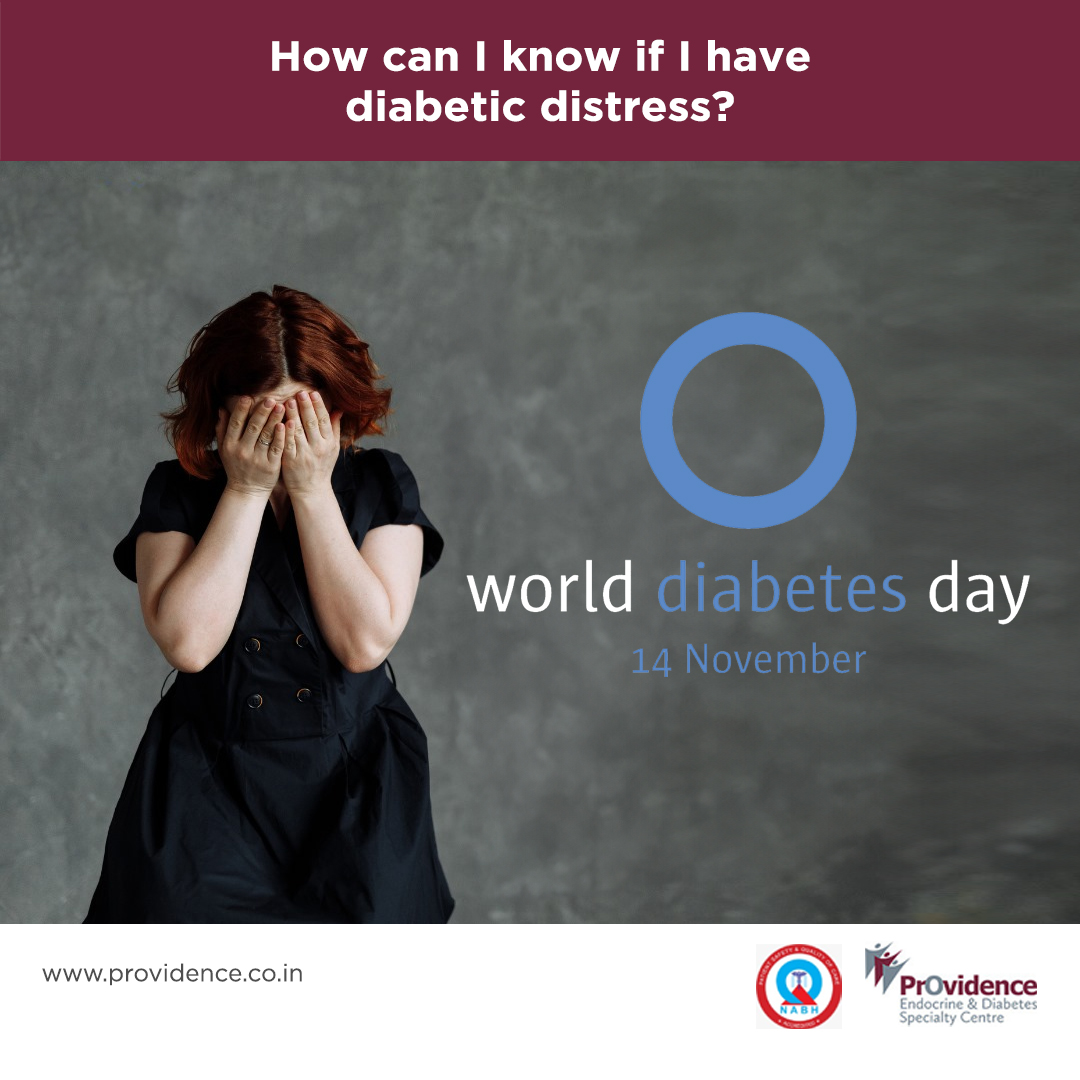Mr Ajith, the bank manager, has been having diabetes for 16 years and is currently on multiple medicines and insulin. He is very well aware that he has to monitor his glucose 3- 4 times daily and take injections 4 times daily. In addition, he has doctor visits (3 doctors, one for diabetes, heart and kidney) almost monthly. He tries to follow foot care, eye care, diet, medicines and monitoring. He says he is attempting his level best but feels fed up and sometimes thinks of stopping all his medicines. He avoids official trips and even personal events since he is perturbed that he may become blind or have kidney failure.
“ Diabetes distress ” refers to the emotional and psychological challenges of managing diabetes. It’s different from depression but shares similar feelings.
What are the signs of diabetes distress?
• Feeling frustrated, guilty, or overwhelmed by diabetes care
• Skipping medication or neglecting self-care
• Unstable blood sugar levels or missing medical appointments
• Feeling overwhelmed by constant monitoring and management
• Anxiety about blood sugar levels or complications
• Feeling isolated and avoiding necessary tasks
• Struggling with negative thoughts
• Experiencing emotional exhaustion
How is diabetes distress assessed?
Healthcare providers use standardized questionnaires. We have included a simple questionnaire called The 2-Item Diabetes Distress Screening Scale (DDS2) to test yourself (see the creative below)
What should I do if I am experiencing diabetes distress ?
• Consult your healthcare provider or endocrinologist
• Consider professional mental health support (psychologist/therapist)
• Prioritise self-care (exercise, meditation)
• Educate yourself about diabetes
Ms. Aneesha Joseph, MSc



